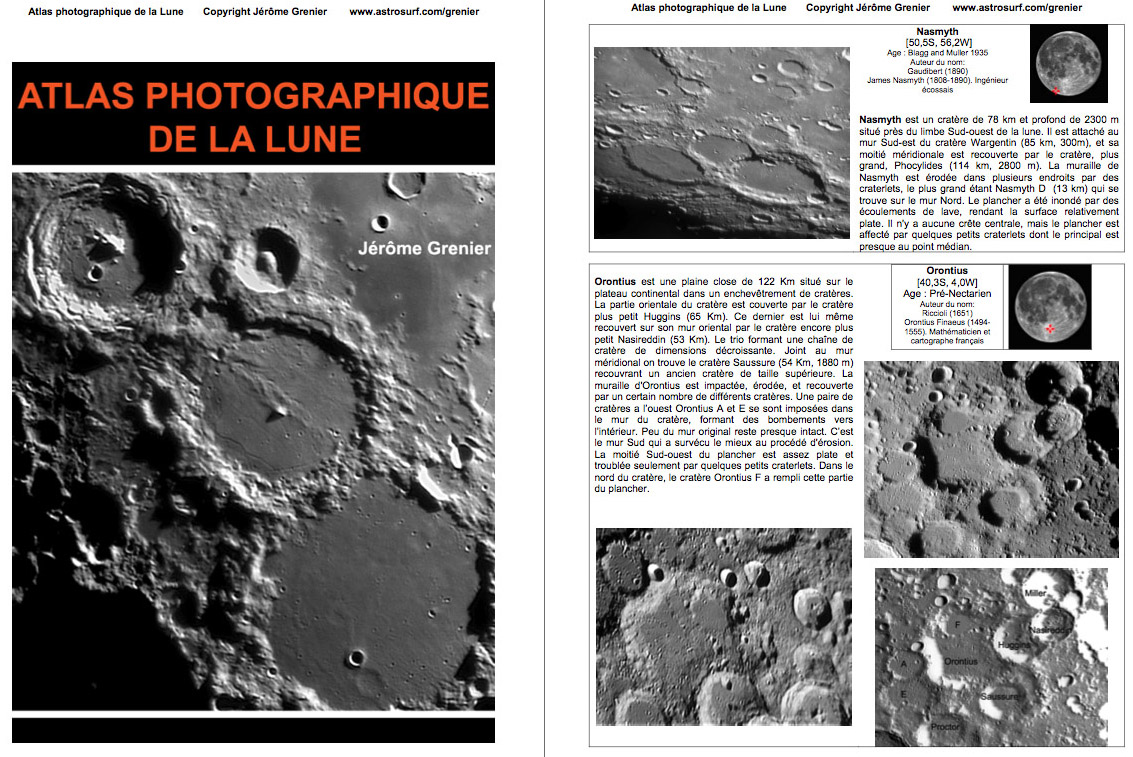
cover and sample page by Jérôme Grenier
Altruism. The word is defined by the Merriam-Webster Online Dictionary as unselfish regard for or devotion to the welfare of others. In the amateur lunar community altruism is exemplified by the widespread sharing of images and help. The most unselfish examples of altruism are when a person gives something away of great value that could be sold. A perfect example is the Atlas photographique de la Lune V1.1 available for free download. This very comprehensive and high quality lunar atlas was created by Jérôme Grenier. The layout of the Atlas is very pleasing as are the contents, which include a history of lunar studies, geology, spacecraft exploration, and instructions on drawing and imaging the Moon. But the most impressive part is the description and image of every nearside named crater. This is essentially a modern version of traditional books such as the 1955 Wilkins and Moore The Moon. Those older books include a description of each feature but a detailed image of only a tiny number of them. What makes this modern Atlas so remarkable is the outstanding quality of each image, and the fact that all were taken by one person with a normal telescope. This Atlas is valuable enough to make you want to learn French, but you can enjoy it without knowing anything other than Merci, Jérôme!
Technical Details:
Jérôme’s images are taken with an 8" Meade SCT and a webcam.
Related Links:
Jérôme’s Website
Yesterday's LPOD: The Most Magnificent Crater?
Tomorrow's LPOD: A Pyroclastic Base?
COMMENTS?
Register, Log in, and join in the comments.



